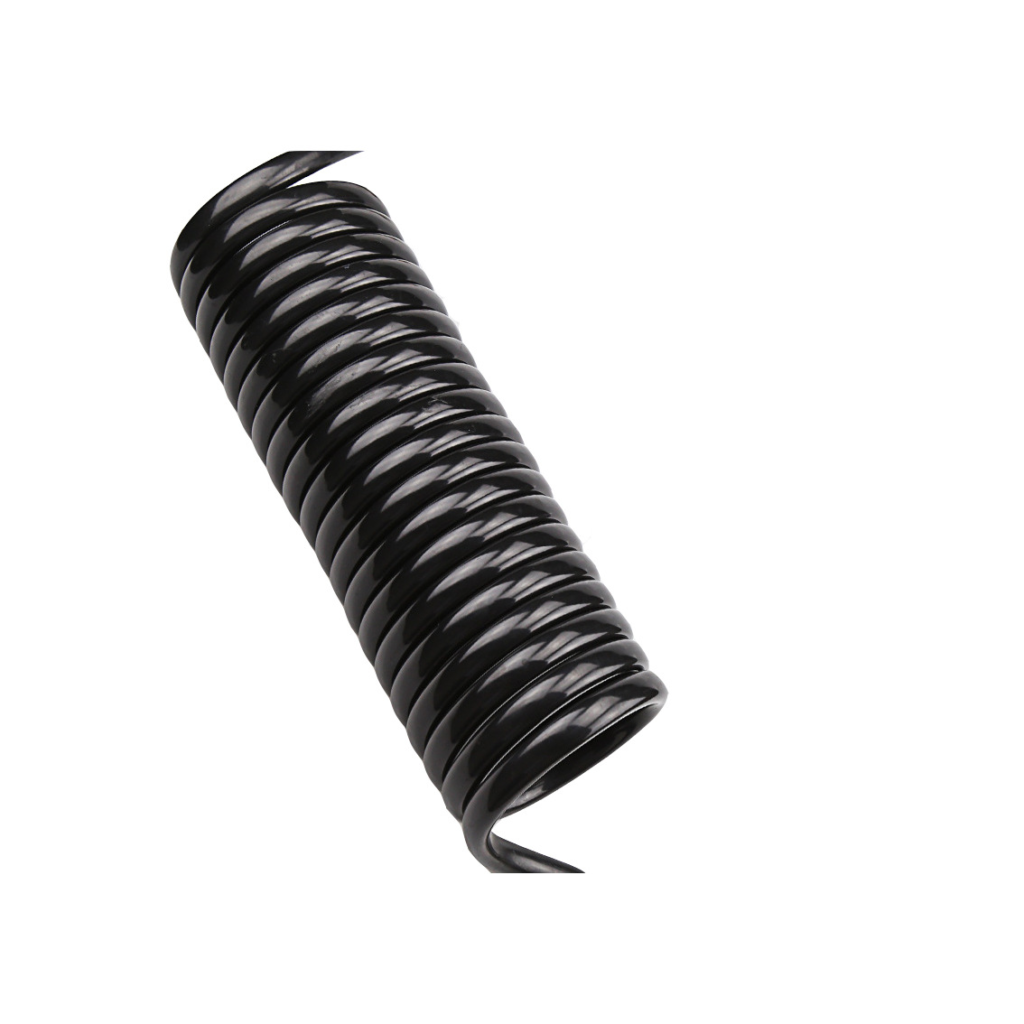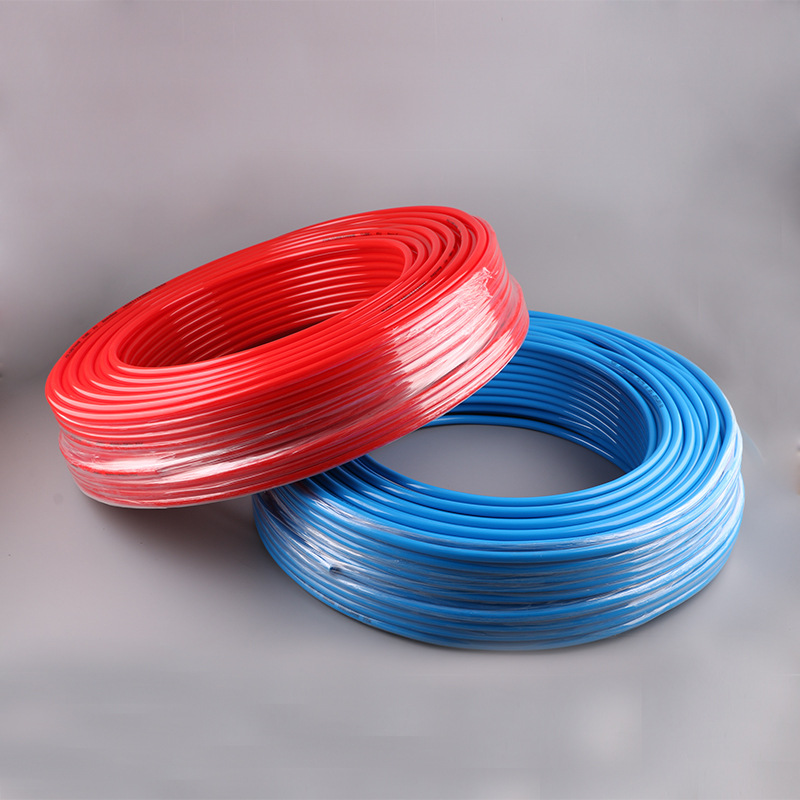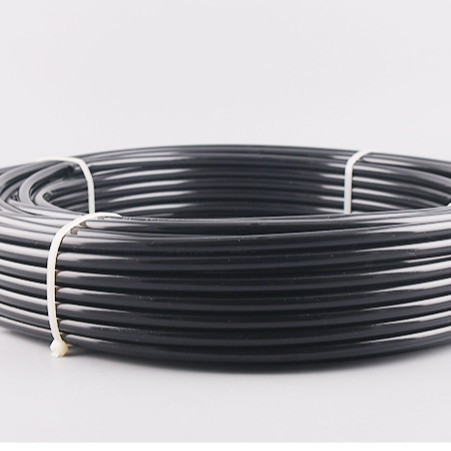Nylon tubing is a highly versatile and durable solution that has found its way into a multitude of industries due to its unique properties. With its excellent strength, flexibility, and chemical resistance, nylon tubing is an ideal choice for various applications, ranging from automotive systems to medical devices. This article will provide a comprehensive overview of nylon tubing, its applications, advantages, and best practices, ensuring you have all the information you need to make informed decisions for your projects.
Table of Contents
ToggleWhat Is Nylon Tubing?
Nylon tubing is a type of flexible tubing made from nylon, a synthetic polymer known for its resilience and durability. It is produced through a process called extrusion, where nylon pellets are heated and forced through a die to create continuous lengths of tubing. The resulting product is lightweight yet strong, with a smooth inner surface that facilitates fluid flow. Nylon tubing is available in various diameters and wall thicknesses, making it adaptable to a wide range of applications.
Key Properties of Nylon Tubing
- High Tensile Strength: Nylon tubing can withstand significant pressure without breaking, making it suitable for high-pressure applications.
- Flexibility: Its inherent flexibility allows it to bend and twist without kinking, which is essential in applications where space is limited.
- Chemical Resistance: Nylon is resistant to many chemicals, including oils, fuels, and solvents, ensuring the tubing maintains its integrity in harsh environments.
- Temperature Tolerance: Nylon tubing can operate effectively in a wide temperature range, typically from -40°F to 200°F (-40°C to 93°C), making it suitable for both hot and cold applications.

What Are the Key Advantages of Using Nylon Tubing?
Nylon tubing offers several advantages that make it a preferred choice in many applications:
- Durability: The high tensile strength and resistance to abrasion ensure that nylon tubing can withstand the rigors of demanding environments, reducing the need for frequent replacements.
- Lightweight: Compared to metal tubing, nylon is significantly lighter, which can reduce the overall weight of systems and improve efficiency.
- Cost-Effectiveness: Nylon tubing is often more affordable than other materials, such as PTFE or metal, making it a cost-effective solution for many applications.
- Ease of Installation: Its flexibility allows for easy routing and installation, even in tight spaces, which can save time and labor costs.
In Which Industries Is Nylon Tubing Commonly Used?
Nylon tubing is utilized across various industries, each benefiting from its unique properties. Here are some of the primary sectors where nylon tubing is commonly found:
Automotive Industry
In the automotive sector, nylon tubing is extensively used for:
- Fuel Lines: Nylon tubing is ideal for transporting fuel due to its chemical resistance and ability to withstand high pressures. It ensures a reliable flow of fuel from the tank to the engine.
- Brake Lines: The strength and flexibility of nylon make it suitable for air brake systems in heavy-duty vehicles, where it must endure high pressures and dynamic movements.
- Air Systems: Nylon tubing is used in pneumatic systems for air delivery, providing a lightweight and durable solution for various automotive applications.
Industrial Applications
Nylon tubing plays a crucial role in industrial settings, including:
- Pneumatic Systems: In factories and manufacturing plants, nylon tubing is used to transport compressed air to actuators and tools, facilitating efficient operation.
- Hydraulic Lines: Nylon tubing is employed in hydraulic systems to transfer fluids under pressure, ensuring reliable performance in machinery and equipment.
- Conveyor Systems: It is also used in conveyor systems for transporting materials, where its flexibility and strength are essential for smooth operation.
Medical Applications
In the medical field, nylon tubing is vital for:
- IV Lines: Nylon tubing is used in intravenous (IV) lines to deliver fluids and medications directly into a patient’s bloodstream. Its biocompatibility ensures safety and effectiveness.
- Catheters: In urology and other medical specialties, nylon tubing is utilized in catheters, where its flexibility and strength are crucial for patient comfort and safety.
- Laboratory Equipment: Nylon tubing is commonly found in laboratory settings for fluid transfer, where its chemical resistance is essential for handling various substances.
Food and Beverage Industry
Nylon tubing is also prevalent in the food and beverage sector, where it is used for:
- Food Processing Equipment: Nylon tubing is employed in food processing systems to transport liquids and gases, ensuring compliance with hygiene standards.
- Beverage Dispensing Systems: In bars and restaurants, nylon tubing is used in beverage dispensing systems, where its chemical resistance ensures the integrity of the drinks being served.

How Does Nylon Tubing Perform Under Different Conditions?
Nylon tubing is designed to perform well under various conditions, but understanding its limitations is crucial for optimal use. Here are some key performance factors:
Temperature and Pressure
Nylon tubing can handle a wide range of temperatures, typically from -40°F to 200°F (-40°C to 93°C). However, prolonged exposure to temperatures above this range can lead to degradation. Additionally, nylon tubing has a specific pressure rating, and exceeding this can result in failure. Always consult the manufacturer’s specifications to ensure the tubing is suitable for your application.
Chemical Exposure
While nylon is resistant to many chemicals, it is essential to consider the specific substances the tubing will encounter. Prolonged exposure to certain solvents or aggressive chemicals can lead to degradation. Always verify compatibility with the chemicals used in your application to prevent premature failure.
UV Resistance
Nylon tubing can degrade when exposed to UV light over extended periods. For outdoor applications, consider using UV-stabilized nylon tubing to ensure longevity and performance.
What Are the Best Practices for Installing and Maintaining Nylon Tubing?
To ensure optimal performance and longevity of nylon tubing, follow these best practices:
Installation Tips
- Cut Cleanly: Use a sharp cutting tool to ensure a clean cut, which helps prevent leaks and ensures a proper fit with fittings.
- Avoid Sharp Bends: While nylon tubing is flexible, avoid making sharp bends that could lead to kinking. Use gentle curves to maintain flow and integrity.
- Secure Connections: Ensure that all connections are secure and use appropriate fittings to prevent leaks.
Maintenance Recommendations
- Regular Inspections: Periodically inspect the tubing for signs of wear, such as cracks or discoloration. Early detection can prevent failures.
- Cleaning: In food and medical applications, clean the tubing regularly to prevent contamination. Follow industry guidelines for cleaning procedures.
- Replace When Necessary: If you notice any signs of degradation or damage, replace the tubing promptly to maintain system integrity.

What Are the Common Troubleshooting Tips for Nylon Tubing?
Even with proper installation and maintenance, issues can arise. Here are some common problems and their solutions:
Leaks
If you notice leaks, check all connections and fittings for tightness. If the tubing itself is damaged, it may need to be replaced.
Brittleness
If the nylon tubing becomes brittle, it may be due to prolonged exposure to UV light or extreme temperatures. Consider using UV-stabilized nylon tubing or relocating the tubing to a less harsh environment.
Kinking
If kinking occurs, it can restrict flow and lead to pressure buildup. Ensure that the tubing is installed with gentle curves and avoid sharp bends.
Conclusion
Nylon tubing is a versatile and reliable solution for a wide range of applications across various industries. Its unique properties, including strength, flexibility, and chemical resistance, make it an ideal choice for automotive, industrial, medical, and food and beverage applications. By understanding the specific applications and best practices for using nylon tubing, you can ensure optimal performance and longevity in your systems.
Ready to explore the benefits of nylon tubing for your applications? Contact us today for expert advice and discover our extensive range of nylon tubing products tailored to meet your needs. Share this blog with your network to help others understand the value of nylon tubing in their projects!

